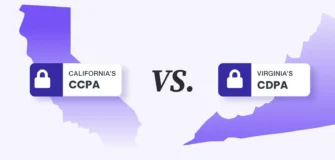The Rise of Identity Theft in America: What Data Hackers Want
Share

Identity theft has become one of the fastest-growing crimes in the United States, affecting millions of individuals and businesses every year. In 2025, hackers are no longer just after credit card numbers—they’re targeting a wider range of personal and sensitive information that can be exploited for financial gain, fraud, and even blackmail.
This article explores the rise of identity theft in America, what data hackers are after, and the lessons individuals and businesses can learn to protect themselves.
Identity Theft in Numbers
- According to the Federal Trade Commission (FTC), identity theft complaints in the U.S. have more than doubled since 2019.
- In 2023 alone, Americans reported over 1.1 million identity theft cases.
- The total losses from identity fraud exceeded $43 billion nationwide.
These numbers highlight a disturbing trend: hackers are evolving, and so must our defenses.
What Data Hackers Want in 2025
Hackers are after data that can be sold, reused, or manipulated. Here’s what’s most valuable:
| Data Type | Why Hackers Want It | Real-World Impact |
|---|---|---|
| Social Security Numbers | Gateway to financial fraud | Used to open fake bank accounts, apply for loans, or commit tax fraud |
| Driver’s Licenses & IDs | Proof of identity | Enables synthetic identity fraud |
| Medical Records | Black-market demand | Sold for up to $1,000 per record due to insurance fraud potential |
| Financial Credentials | Direct financial access | Online banking fraud, stolen funds, wire transfers |
| Login Credentials | Access to multiple accounts | Credential stuffing across platforms |
| Biometric Data (face, fingerprint) | Irreplaceable identifiers | Emerging target for bypassing authentication |
| Personal Emails & Phone Numbers | Phishing and scams | Used to run social engineering attacks |
Why Identity Theft Is Rising
- Data Breaches Are Exploding
Massive breaches at companies like Equifax, T-Mobile, and Capital One continue to leak millions of records. Hackers thrive on these databases. - Dark Web Marketplaces
Stolen data is sold in bulk on the dark web—often for less than the price of a cup of coffee. - Weak Password Practices
Despite years of warnings, many Americans still reuse passwords, making hackers’ jobs easier. - AI-Powered Cybercrime
Hackers now use AI tools to craft more convincing phishing emails and deepfake identities.
The Business Side of Identity Theft
Identity theft is not just a personal problem—it’s a corporate liability. When hackers steal consumer data, businesses face lawsuits, settlements, and reputational harm.
Case Insight:
In 2024, a U.S. retail company faced a $15 million settlement after hackers exploited weak point-of-sale systems, leading to widespread identity theft claims.
How Americans Can Protect Themselves
- Freeze Your Credit – Prevents criminals from opening accounts in your name.
- Use Strong, Unique Passwords – A password manager can help.
- Enable Multi-Factor Authentication (MFA) – Extra protection for sensitive accounts.
- Monitor Bank & Credit Reports – Early detection is key to stopping fraud.
- Be Wary of Phishing – Don’t click links or attachments from unknown senders.
How Businesses Can Defend Against Identity Theft
- Encrypt sensitive customer data to protect against breaches.
- Adopt “Zero Trust” frameworks where no user is trusted by default.
- Invest in employee training to prevent phishing and insider threats.
- Follow compliance laws like CPRA, HIPAA, and GDPR for stricter security practices.
- Run regular penetration tests to identify and fix vulnerabilities before hackers exploit them.
FAQs on Identity Theft in America
Q1: What is the most common type of identity theft in the US?
Credit card fraud remains the most reported, but medical identity theft and account takeovers are rapidly increasing.
Q2: How do hackers get Social Security numbers?
Through data breaches, phishing attacks, and scams targeting vulnerable individuals.
Q3: Can identity theft be completely prevented?
No system is 100% secure, but proactive security measures greatly reduce the risk.
Q4: What should I do if I’m a victim of identity theft?
Report to the FTC (IdentityTheft.gov), notify your bank, freeze your credit, and file a police report if necessary.
Final Thoughts
The rise of identity theft in America underscores the growing value of personal data in today’s digital economy. Hackers are after far more than just credit cards—they want full digital identities they can exploit repeatedly.
For individuals, this means practicing vigilance and adopting stronger security habits. For businesses, it means treating consumer data like the most valuable asset you hold—because to hackers, it is.
Protecting data is no longer optional—it’s the foundation of digital trust.






































Leave a Reply